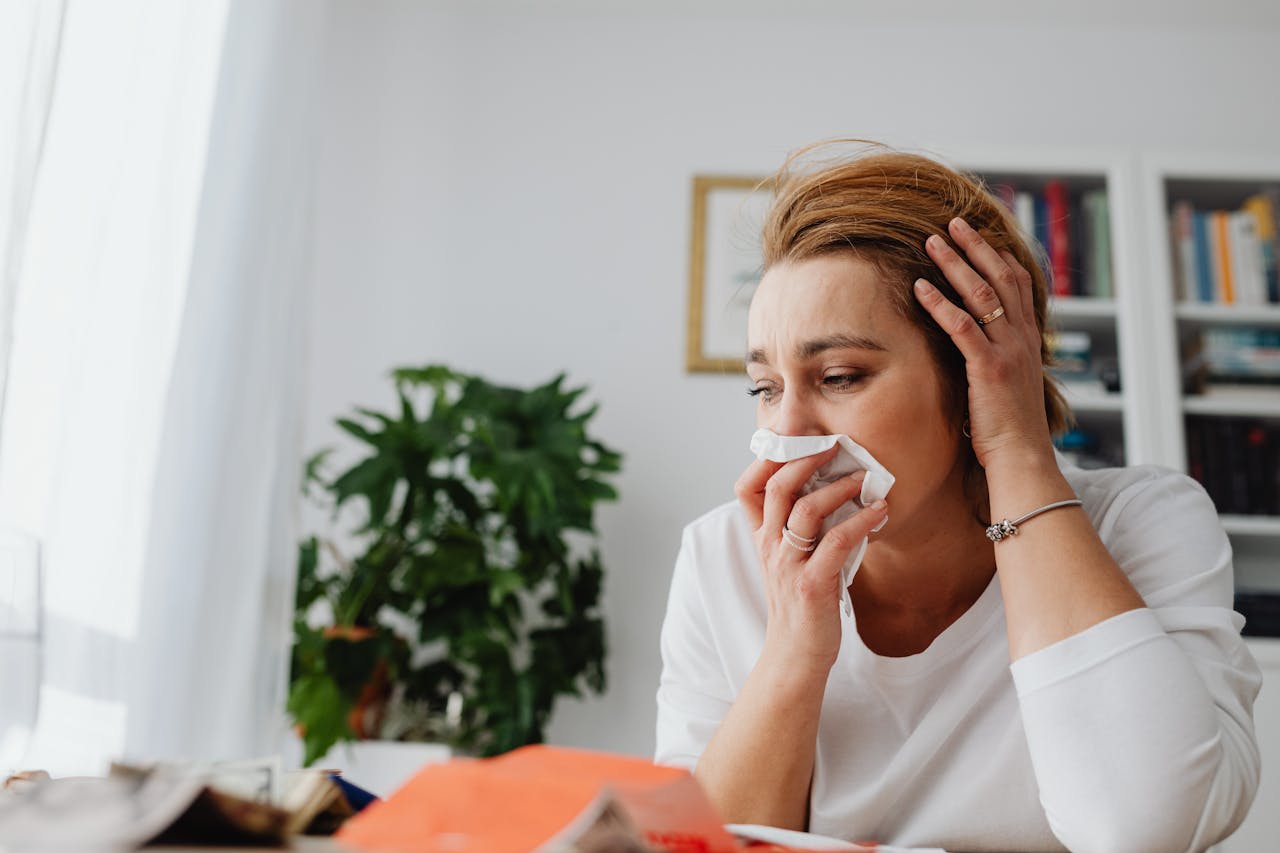Although we may currently be in a windy and rainy spot here in the UK, thousands of people across the country aren’t all looking forward to the warm weather. Rather, it’s what the warm weather brings that is a problem to some. Reports indicate that a staggering 1 in 5 people in the UK are affected by considerably bad hay fever in the warmer months, and last year saw a real surge in people seeking advice for dealing with the seasonal allergy. Analysis conducted by NHS England in 2023 underscored the magnitude of the hay fever epidemic, with visits to the NHS website's hay fever page soared by over 250% in a month – yet this was earlier than ever before. On one day, 30,000 people sought advice, and a warning of a particularly mild end to the winter has many people worried.
An early spring heatwave in 2023 lead to a spike in hay fever which, according to data from the NHS, lead to a tripling in the number of people seeking help for their symptoms, with a remarkable 122,650 visits recorded in one week. This surge in demand for medical support highlights the significant impact of environmental factors on allergic conditions to many, and as we are in the dying light of winter, Hay Fever is starting to become a real concern to many once more. February this year has been particularly mild and has already led to some reporting their symptoms have begun earlier than ever. Are we set for a repeat?

Dr Beverley Adams-Groom, chief pollen forecaster for the National Pollen and Aerobiology Research Unit, said: “People are calling and saying they’ve already got hay fever this year. It’s due to the mild February”. She also discussed how fungal spores are similarly beginning to peak early, “so that is also troublesome to those with that allergy”. On television, ITV weatherman Chris Page stated in a recent broadcast, “Mild air has kicked off the pollen season early. Tree pollen is increasing to high in the south on Monday”.
Hay fever, also known as Seasonal Rhinitis, is triggered by pollen from grass, trees, and weeds, particularly during the spring and summer months. Symptoms such as sneezing, itching, and nasal congestion are commonly experienced, making life difficult for both adults and children alike. The severity of hay fever tends to peak between late March and September, coinciding with periods of high pollen levels, especially in warm and humid conditions. Yet, even government agencies warn that changing climates could shift the window for Hay Fever ever wider.
The UK Health Security Agency even discussed how a mild February has begun the misery for many, with a blog last week discussing the conditions in the UK currently, “Recent studies suggest that some types of pollen and other allergens could be released earlier in the year and for longer durations as temperatures rise. For some types of pollen, this may mean levels high enough to trigger hay fever as early in the year as January or February”.
Genetic predisposition is acknowledged as a significant factor in determining an individual's susceptibility to hay fever. Research indicates that certain genes, including those involved in immune system regulation, play a crucial role in determining one's likelihood of developing allergies. Despite advancements in our understanding, the precise mechanisms underlying allergy development remain elusive, with factors such as severe infections, pollution exposure, and hormonal changes also thought to contribute.
In the UK more people than not probably experience some sort of pollen related symptoms. There are, however, different types of pollen that bloom in different seasons, and not everyone will be affected by all of them. This could range from a slight irritation to severely allergic, whilst others may be totally unaffected once the offending pollen has subsided. The pollen season in the UK has often been touted to have three phases but this could change as our climates drift. These are usually;
March until May - the blossoming hazel and birch trees leads to the first wave of symptoms for those particularly affected.
May until July – grasses begin to grow longer and more vibrant, leading to the bulk of the UK’s pollen load.
June into Autumn - Weed pollen (such as dock and mugwort) starts to occur and can last for a long time depending on the season and temperatures that year
